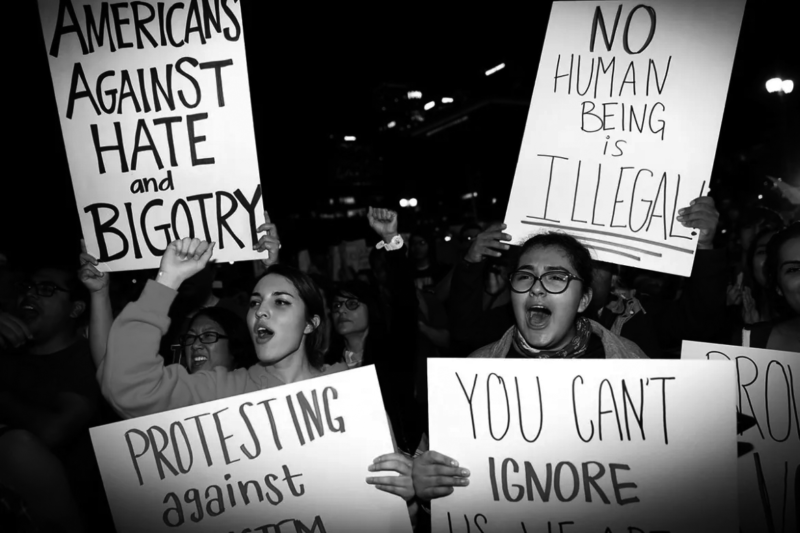Spring has come early to Bosnia!
In early February thousands workers and young people took to the streets in towns and cities across Bosnia –Herzegovina (BiH); Tuzla, Sarajevo, Zenica, Brčko, Bihac and Mostar and others. KD Tait reports on the advance of the working class and youth onto the battlefield
They are mobilising not just in protest against the harsh conditions of life, but with the aim of overthrowing the rule of the nationalist parties who have governed since the end of the 1992-5 civil war. Those politicians who need encouragement to jump are getting it with bricks and Molotov cocktails through their windows.
Under the terms of the imperialist-sponsored Dayton Peace Agreement, the nationalists have pursued a common policy of divide and rule – the better to profit from the destruction and running down of the country’s economy.
The economy is ruins despite nearly 20 years of supposed reconstruction and the public sector debt with commercial banks has doubled in last four years. Even The Economist (February 15) comments “Eighteen years after the end of the war the people are poor, the politicians are rich and corruption is rife.”
Officially, 40 per cent of the workforce is unemployed, and this rises to 60 per cent amongst youth – a rate of wasted human potential and poverty which has remained unchanged for years. The participation of a generation of educated youth with no hopes for the future was, as with the revolutions of the Arab Spring, a decisive factor in generalising a working class uprising In Tuzla, right across the country.
The streets echo to the slogans of a people determined to overcome the crippling sectarian divisions – death to nationalism, down with the corrupt political class, unity between Bosniak (“Bosnian Muslim”), Serb and Croat workers and young people.
The success or failure of the movement in Bosnia-Herzegovina depends largely on the ability of workers and youth of the two entities comprising the federation to seek a common cause. It is clear, however that the growth of a progressive working class movement in the ethnically homogenous Republika Srpska hinges on developments across the border in Serbia.
Bosnian workers and youth need solidarity from their brothers and sisters across Europe. Already there have been solidarity demonstrations in the Serbian Capital Belgrade on 12 February as well as in the Croatian capital Zagreb on the 13th. The difficulties of overcoming the bitter divisions entrenched by the memories of the civil war should not be underestimated but recent events hold out the first hopes of this for many years.
Tuzla: a working class fightback
The epicentre of the February 4 uprising was Tuzla – Bosnia’s main industrial city and mining area and a historic bastion of the multi-ethnic working class.
Five factories in the Tuzla region were privatised in the 2000s. The factories were handed over to private owners on the condition that they would invest in the plants and guarantee job security. In fact they sold them for parts before declaring bankruptcy.
The workers thrown onto the scrap heap have watched their bosses brazenly swan off, lining their pockets with months of unpaid wages and years of workers’ pension and healthcare contributions. All this has occurred with the complicity of the various governing parties. The shameless corruption of the political bureaucracy is the more obscene in a country where government officials take home more than €3,000 a month compared to the average of just €400.
After just two days of joint mobilisations by unemployed youth and workers, the protesters set fire to government buildings – a symbolic expression of the contempt with which these corrupt and parasitic institutions are held by ordinary people. Witnesses said that the workers and youth were joined by the organisations of the unemployed, the pensioners and the war veterans.
The Tuzla cantonal government appealed to workers to cease their protests and negotiate through the labour unions – the same ones who had failed to stop the privatisation, asset stripping and bankruptcy of their workplaces, or do anything about the fact that many workers were owed over a year’s wages. But, having relied on the services of these traitors for 20 years, the government found the labour union bosses had not one shred of credibility remaining.
Soon government offices and party headquarters were being stormed in cities and towns across the country including the capital Sarajevo. The protesters are furious at the media’s coverage which treats them all as a violent hooligans. As one participant in the demonstrations, writer Faruk Šehić, commnented:
“The true hooligans are the haughty politicians, the beasts in suits, the crooks and criminals. They demolished the public institutions, torched and destroyed everything in their paths. They’ve been doing this for twenty years and no one has been able to reason with them and stop them. The protesters’ last resort was to run amok.”
However, the protests have spread not just to the more ethnically mixed cities like Tuzla or Mostar but also to predominantly Croat towns like Livno and Orasje, and predominantly Serb towns like Prijedor and Bijeljina. This shows that the protesters have the potential to overcome sectarian divisions which have produced nothing but suffering for ordinary Croats, Serbs or Bosniaks.
In the capital of the Republika Srpska, Banja Luka, a small solidarity demonstration was attacked by Serb nationalists. The limits on support seen for the movement thus far can be traced to the history of the Bosnian Serb entity; its formation as an enclave carved out amidst the ethnic cleansing and genocidal massacres of 1995.
A people in chains
Protesters have chanted down with nationalism and scrawled it on the walls. The reasons are clear. It is nationalist demagogy which has enabled the local cliques of nationalist politicians to divide, rule and exploit the workers of Bosnia. The Dayton Agreement froze the dreadful results of the ethnic cleansing and three years of a war which reached genocidal proportions in Srebrenica in 1995.
The complex system of government imposed by the Dayton Agreement, far from ensuring the promised accountability, protection and autonomy for Bosniaks, Croats and Serbs, has in fact served to facilitate the creation of a bloated privileged strata of nationalist officials who use the contradictory and competing levels of local, regional and national federation and government to obstruct each other’s designs, promote their own interests and generally conceal their common banditry and plundering of the economy.
Of course, the various factions would not be able to get away with this without the sanction of the EU imperialists. The EU’s writ is enforced by EUFOR – an occupation force of 2,500 soldiers under an Austrian general. The High Representative for Bosnia and Herzegovina, appointed by the EU, has the power to impose binding decisions and dismiss elected officials – powers it has used frequently and without scrutiny for over a decade.
Faced with a popular uprising the European imperialists will no doubt attempt to shore up the political system that they themselves created. While the workers of Tuzla understandably demand the institution of education, healthcare and employment practices that match European norms, they rightly reject any idea that the European powers should intervene in their struggle.
As if they needed any further lessons in the cynical policy of the European ruling class, they need only observe Ukraine, where Germany supports the Euromaidan movement, despite its violence and fascist components, but insists that in BiH order must prevail. Indeed, the first response of the Austrian High Representative was to threaten the protesters with the use of foreign soldiers to restore order if the government and police could not.
The plenums and people’s democracy
Every movement which sets itself the goal of bringing down a government faces the question of who and what should replace those deposed. When, as in Bosnia-Herzegovina, almost the entire political class, and every party is discredited in the eyes of the people as corrupt, self-serving parasites, the task of creating a democratic government out of the chaos is one the workers and youth have not left to chance, but have seized with their own hands.
The Economist has reported on a development which holds great potential for sustaining and developing the movement:
“Now something extraordinary is happening. Led by Tuzla, so-called “plenums” of fed-up citizens, unemployed workers and intellectuals are springing up to make political demands. On February 11th elected members of Tuzla’s cantonal assembly met its plenum to discuss the idea of a government of non-party experts. In the ethnically divided city of Mostar, Croats and Bosniaks are also working together in a plenum.” (Feb 15 edition)
It appears that the idea of these plenums arose during the 2006 Belgrade student movement and the Croatian wave of student occupations in 2009. Here again is a worked example of the need for common action and interaction to the mutual benefit of all the Balkan peoples in their struggle against nationalist, sectarian division.
In an interview with Al-Jazeera, Tuzla University teacher Damir Arsenijević answers the question – what is a plenum?
“A plenum is an assembly of all the members of a group. It is a public space for debate. It has no leaders or prohibitions. Decisions are made through a public vote. A plenum is not a political party, or an NGO, or a one-person association. A plenum is the real, and the only, democracy. A Plenum makes and adopts demands to all the institutions of state power by its own declaration. People vote for or against. Decisions are made on a majority basis.”
The holding of plenums rapidly spread from Tuzla to Sarajevo and other major towns and cities and they have demanded the resignation of the cantonal governments, as has already happened in Tuzla, and are trying to exert popular control over the activities of the official Cantonal Assemblies.
Through the medium of the plenum, the workers and students of Tuzla have developed a whole series of demands. These include:
• more equal wages, health protection for workers; the reduction of salaries for public service to the level of factory workers etc.:
• the confiscation of illegally obtained wealth and legal action against economic crimes;;
• a reassessment of the privatization process of the Dita, Polihem, Poliolhem, Gumara and Konjuh factories; the release of all documents relating to the privatisation of industry in the last 10 years;
• the re-nationalizationof these factories and the resumption of production under workers’ control;
• an end to police violence, release of prisoners;
• the appointment of a non party government of experts, with no party affiliation, whose background can be scrutinised by the people
Over the last three years we have witnessed various attempts at direct democracy in the Indignados movement in Spain and the Syntagma and other square occupations in Greece, the US #Occupy movement. These had the problem that they could hardly make any decisions let alone implement them. The prioritisation of individual expression over efficient mass participation was was a serious obstacle to working class participation – i.e. they could not incorporate the viewpoint of that part of the population capable of using its economic power to advance the political decisions of the assemblies.
Clearly the Bosnian plenums aspire to be effective in action and maybe because of the militant mass mobilisations, initiated by the workers in Tuzla they already appear more decisive, voting by majority, not seeking to ban political parties as such.
But unless these plenums do delegate their authority – delegation subject to immediate recall and with binding mandates on policies – to councils that can meet daily and act as an executive to see to their implementation they could fail by sheer exhaustion or fall victim to repression when the mass movement subsides.
But above all else they will have to develop even further their links to the working class in the factories for there via the weapon of the general strike lies the power to check any repression or intervention either by the governments or the EU.
Taking the power
The demand for a government composed of politically unaligned “experts” reflects the deep contempt of the people for the parasitic political elite. Their anger at the corrupt politicians and their political parties is fully justified, and they should throw them out. But there simply are no “neutral experts” who can be called in to do the governing.
Whose experts? Where will you find them? They will not be provided by the business community, by the state bureaucracy or the professors, let alone by the European Union. The governments of bankers and technocrats appointed in Italy have simply pressed ahead with privatisations and austerity – i.e. they were composed by the political and financial institutions of the ruling class and imposed on the people to carry out the imperialists’ policies, when parliamentary democracy proved incapable of doing so.
Of course the plenums should do all in their power to exercise control over the current cantonal assemblies and governments but their aim should be to replace them with a government made up of delegates from amongst the working people, students, the unemployed youth.
Doubtless there are many progressive people with economic, technical and administrative expertise who will be willing to serve the people. But even then the workers and youth will have to control them with their own delegates who can oversee this work and learn how to do it themselves.
Then the workers, youth and poor farmers can start to reorganise production to meet the needs of the people. But this will need the working class to take the initiative once more to form a workers’ government – to take power. Then the paralysing Dayton system of cantonal governments can be abolished and replaced by councils of recallable delegates.
But clearly a small state like Bosnia could hardly survive in isolation – indeed for Bosnian workers to achieve unity amongst themselves they will need to reach out to the progressive forces in Serbia and Croatia.
Solidarity in a common struggle against the same sort of rotten regimes will prove to all sectors of workers the need for class unity. Recent mass movements against austerity and misery in Slovenia and Bulgaria indicate that this can be done. A political goal that could link not only the south Slav peoples but also the Albanians in Kosova and other minorities would be the traditional slogan of communists in the early twentieth century – a federation of socialist states of the Balkans.
International solidarity
Since the rulers of Western Europe and North America played such a reactionary role in the break up of Yugoslavia and interfering in and prolonging the war, and then in maintaining the disastrous Dayton system, and pressing for privatisations and neoliberal “reforms “- workers and students in these countries need to do all in their power to bring solidarity to their brothers and sisters in Bosnia and the other Balkan countries.
We must demand no intervention to “restore order.” We should raise any funds and resources the activist there request. We should build links with the organisations fighting neoliberalism and the Dayton system. We should send delegations to learn from the struggles and institutions being created there.
The only “order” we support is that created by the workers and youth themselves.
The resistance of the workers and youth to neoliberalism and capitalist austerity encircles the world. From Damascus to Sarajevo via Gezi Park, people are rising up against a system which cannot provide even the minimum necessary to survive.
We stand in solidarity with the workers and youth on the streets of Bosnia-Herzegovina, and those waging a progressive resistance in every country of the world.
The workers and youth, the pensioners and poor famers of the Balkans must fight to defend the embryonic democracy they are creating in the forms of the plenums. The first tentative steps have been taken, and cannot, must not, be surrendered.
Their brothers and sisters across Europe should organise solidarity and defend the right of the peoples of Bosnia-Herzegovina to determine their own destiny – a right to political and economic self-determination that ultimately can only be defended with force against those who would crush the movement and force them back into nationalist ghettoes and capitalist wage slavery.











